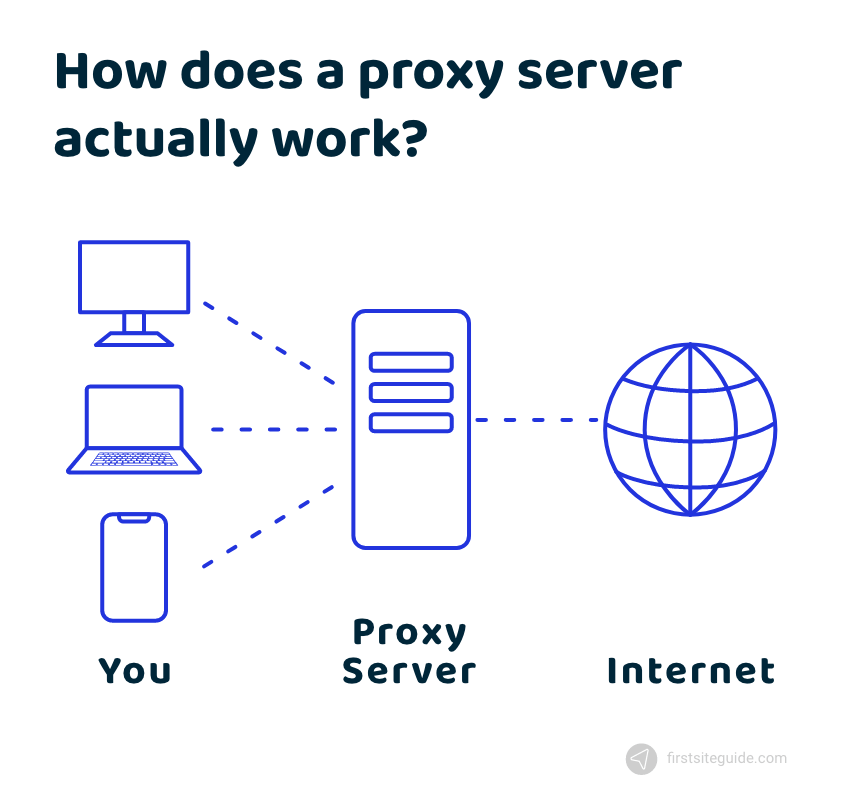In the modern online environment, online privacy and security are paramount concerns for many internet users. As we move through an ever more interconnected world, the need to keep our personal data safe and ensure online anonymity has reached critical levels. One viable solution for addressing these concerns is the employment of proxy servers. So, what is a proxy server, and how do they function? This guide will take you through the key steps to set up your own proxy server while highlighting the different advantages and categories of proxies available.
Whether you want to enhance your online privacy, access geo-restricted content, or enhance your gaming experience, grasping the concept of proxy servers can unlock a world of possibilities. From understanding the differences between proxies and VPNs to looking at how companies utilize proxies for security, this article will provide you with the information you need to take educated steps about your online presence. Come along as we explore the setup process and discover the various perks that come with leveraging a proxy server.
Comprehending Proxy Servers servers
Proxy server serve as middlemen between your system and the internet. When you submit a call to reach a web page, the request firstly goes through the proxy server, which sends it to the final server. This implies the IP address you use is concealed from the destination site, and the destination only sees the IP address of the intermediary. This process enables individuals to boost their privacy and safety while navigating the internet.
There are different types of proxy servers, each with its unique functionalities and use cases. Hop over to this website include HTTP servers, which are used for internet traffic; SOCKS proxies, which can process any form of network traffic; and transparent proxies, which operate without altering calls. Understanding the differences between these proxy server types is crucial for selecting the right one for your requirements, whether for personal use or commercial applications.
Using a proxy comes with several benefits, especially regarding internet privacy and safety. By concealing your identity, proxies assist guard your identity from sites and potential hackers. They also offer additional capabilities such as filtering content, blocking ads, and caching data, which can boost surfing efficiency and security. However, it is vital to select reliable proxy services to ensure effective security and lessen risks.
Advantages and Concerns of Using Proxies
Using proxies offers a range of advantages that can improve your online experience. One of the primary advantages is improved anonymity. Proxies can hide your IP address, making it more difficult for sites and platforms to track your browsing habits. This layer of privacy is particularly helpful when accessing sensitive information or when you want to avoid targeted advertisements. Moreover, proxies can provide entry to geo-restricted content by redirecting your connection through servers located in various regions, allowing you to access streaming services and sites that may be restricted in your location.
In spite of these advantages, there are inherent dangers associated with using proxies. One of the significant concerns is safety, especially when using free proxies. These services may log your actions or even insert malicious data into your connection, putting your personal data at risk. Moreover, not all proxies provide data protection, which is essential for safeguarding your data from potential interceptors. Therefore, it's essential to choose reputable proxy services and understand their privacy policies to reduce these concerns successfully.

Another important consideration is the potential for slower internet speeds. While some proxies can boost performance in certain scenarios, others may cause lag due to their redirection methods. This can be particularly troublesome for activities such as gaming or watching high-definition videos. It's crucial to assess the type of service you choose, as certain options, like home IPs, may provide better speed and reliability compared to free or anonymous proxies, offering a more smooth user experience.
Opting for The Best Proxy to Meet Your Needs
When choosing a proxy server, it is always essential to think about your individual needs to ensure optimal performance and security. Various types of proxies serve multiple purposes, whether it be for browsing anonymity, streaming, or data scraping. For instance in point, HTTP proxies are best for web browsing, but SOCKS proxies deliver more versatility for multiple types of traffic. Assess whether or not you need a residential proxy for a more genuine browsing appearance or a data center proxy for enhanced performance.
Additionally, consider the level of privacy and security you require. Proxies can differ in the encryption methods they support, impacting your online safety and data protection. If accessing sensitive information, opt for proxies that offer robust encryption. It is likewise important to investigate the reputation of the proxy service to ensure they do not log your activity or sell your data.
In conclusion, consider the geographic needs of your activities. If you plan to bypass geo-restrictions for streaming or gaming, opt for a proxy that can effectively mask your IP address in the targeted region. Check user testimonials and testing results, as this can uncover how well a proxy performs under different conditions. By carefully assessing these factors, you can select a proxy that meets your needs and boosts your online experience.
